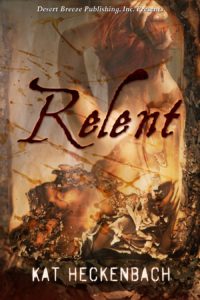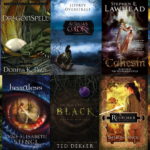Are Antiheroes Anti-Christian?
For the longest time, I ignored everyone’s posts about the TV series Breaking Bad, until I finally had one too many people tell me I just had to watch it because I would totally love it. Which I did—watch it, and totally love it—as did my husband. We followed up with what is available of Better Call Saul. Then began our search for another show to binge and found ourselves in the universe of Dark Matter. We made it to the end of that series (well, to the point where it cuts off because it was cancelled) and our current binge is The Blacklist. There is something all of these shows have in common: antiheroes.
Walter White is a family man cooking meth in Breaking Bad. Saul Goodman is a con man who goes from being a nearly-honest lawyer to the man who protects criminals in Better Call Saul. In Dark Matter, a crew of mercenaries on a stolen space ship travels around saving people all over the universe. And Raymond “Red” Reddington uses his background as a master criminal to help the FBI catch other master criminals on The Blacklist.
an·ti·he·ro
The most common definition I could find online: a central character in a story, movie, or drama who lacks conventional heroic attributes.
The definition we came up with at an antihero panel at the Necronomicon: a central character who does the right things for the wrong reasons, and wrong things for the right reasons.
I hadn’t even thought about it until the other day, when we’d gotten a few episodes into The Blacklist. I found myself turning to my husband and saying, “Hm, another show with an antihero.” It made me start pondering why he and I keep being drawn to them, and I realized we’ve enjoyed antiheroes for a long time.
Silence of the Lambs has been one of my favorite movies since my husband and I first saw it in the theater on our first date. Hannibal “the Cannibal” Lector helps Clarice find serial killer Buffalo Bill. Highlander is another of my top-favorite-ever movies, starring an immortal who goes around beheading other immortals because “there can be only one” rather than any sense of goodness. Sure, the villain is super villainous and deserves to be separated from his head, but the main character is a murderer, a thief, and quite the con man. Dirty Rotten Scoundrels (a contest between con artists), Fun With Dick and Jane (ordinary couple turned bank-robber), A Knight’s Tale (yes, Will Thatcher wants to be a knight, but he’s a thief and liar even though he has a good heart, and Chaucer is a complete scoundrel). The Punisher, James Bond, Maleficent. I’d even call Iron Man an antihero because it’s really Tony Stark’s ego that drives him.
OK, OK. So I may be pushing into some gray area here, and it’s not always clear where the line is between antihero and just-plain-flawed hero. Regardless, antiheroes are out there in full force these days, and they seem to be getting more popular. What makes this true? And how as Christians should we handle antiheroes? Do they have a place in what we view and read? Do they have a place in what we write?
 I’m going to start with my last question. Because I think they absolutely have a place in our writing. If I didn’t think so, I wouldn’t be writing so many of them myself. The first time I realized I had truly written an antihero was with a short story I had published in an anthology titled Dark Heroes. My story, Ordinary Folk (now its own ebook), is about a woman named Jamie who discovers her strange monthly symptoms have nothing to do with her hormone cycle (as her doctors had convinced her) and everything to do with the cycle of the moon. Yep, she’s a werewolf, but had been raised by humans and had never turned, so she had no knowledge of the truth about herself. She discovers her history when she goes back to the town where she was born and meets an old man who knew her biological parents, and who shares their particular attribute. She is a monster, but she is a hero because she defeats the real monster in town: the man out to kill off the werewolves who have learned to live in peace with humans.
I’m going to start with my last question. Because I think they absolutely have a place in our writing. If I didn’t think so, I wouldn’t be writing so many of them myself. The first time I realized I had truly written an antihero was with a short story I had published in an anthology titled Dark Heroes. My story, Ordinary Folk (now its own ebook), is about a woman named Jamie who discovers her strange monthly symptoms have nothing to do with her hormone cycle (as her doctors had convinced her) and everything to do with the cycle of the moon. Yep, she’s a werewolf, but had been raised by humans and had never turned, so she had no knowledge of the truth about herself. She discovers her history when she goes back to the town where she was born and meets an old man who knew her biological parents, and who shares their particular attribute. She is a monster, but she is a hero because she defeats the real monster in town: the man out to kill off the werewolves who have learned to live in peace with humans.
I wanted to show forgiveness with this story—a main character able to forgive herself for being deeply flawed and not letting herself become her flaw. She needed to be more than just a main character dealing with a bad temper or struggling with a vice. There had to be something deep and dark lurking in her, far beyond the typical human flaw. Something that would take more than a normal dose of forgiveness to overcome.
 Likewise, when I began writing my latest novel, Relent, I found myself wanting to create a character who needed forgiveness but felt unworthy. Simone is a half-angel, but only finds out the truth about herself when the demon Wraith tells her the story of her birth and how her angel mother left her on earth in order to regain her status in heaven. Simone goes on to have a child of her own, and abandons that child just as her mother had abandoned her. But when she decides she wants her daughter back in her life, she uses methods that cause the angel half of her to begin to fall. She turns to Wraith for help—Wraith, the one who almost always mixes lies with truth, but is completely honest about doing so, which makes him the one Simone trusts more than anyone. Wraith, who will manipulate Simone to keep her by his side, until it means losing her to the darkness that has succumbed him.
Likewise, when I began writing my latest novel, Relent, I found myself wanting to create a character who needed forgiveness but felt unworthy. Simone is a half-angel, but only finds out the truth about herself when the demon Wraith tells her the story of her birth and how her angel mother left her on earth in order to regain her status in heaven. Simone goes on to have a child of her own, and abandons that child just as her mother had abandoned her. But when she decides she wants her daughter back in her life, she uses methods that cause the angel half of her to begin to fall. She turns to Wraith for help—Wraith, the one who almost always mixes lies with truth, but is completely honest about doing so, which makes him the one Simone trusts more than anyone. Wraith, who will manipulate Simone to keep her by his side, until it means losing her to the darkness that has succumbed him.
Both of those stories are what I feel are the most “Christian” of all the stories I’ve ever written. Yes, my YA fantasy series is allegorical, but it doesn’t truly show the absolute forgiveness we all have access to, which is the whole point of Christ’s death on the cross. I have other short stories that show the bleakness we face when we don’t know Christ (“Fire Wall“), and stories that flat-out point to God as our creator (“Dude“). But Ordinary Folk and Relent are stories where the rubber meets the road for characters most Christians would consider unredeemable.
Which brings me to the other questions. If, as my writing shows, stories written by Christians can have antiheroes, then I would say those stories can absolutely be read by Christians. They serve as reminders that all sin can be forgiven, that no one is beyond God’s touch, that Christ died for every last one of us, not just we who are mostly good. The worst of the worst still have some good, or at least the potential for good, which means they too can accept the gift of Christ’s redemption and God’s grace. Is that maybe why antiheroes have become so popular? In a world where we see so much evil, so much hate, so much discord, are we searching for stories that show there is hope after all, even in the darkest places of humanity, even for the darkest of souls?







































Good article! I love anti heroes, like Han Solo and Shadow the Hedgehog. There’s just something fun about the amoral character who nonetheless has a moral code of some kind that they adhere to and will not violate, sometimes at the cost of everyone around them. Like Jason Bourne refusing to kill in front of kids, even though it ruins his whole mission and sends him on the run. Sure, antiheroes may be the ones who kill and steal and whatever, but usually they do it to help others, even if it’s kind of twisted. Kind of like Robin Hood.
Ah, Robin Hood! Great example!
I think antiheroes are actually very important for Christian authors right now.
Not a week goes by in which I don’t hear the ol’ “you don’t need religion to have morals” trope — and it’s, of course, true.
In fact, you don’t even have to BE a “good” person to DO good. You needn’t even be moral.
But the antihero raises the important question: does DOING good MAKE you a good person? Is it enough to have some sense of “morality” — whatever that is? Or is there something more.
What about someone who does bad things for the “right” reasons? (For the record, Walter White and the whole Breaking Bad series are a GREAT examination of this concept, precisely because, as we follow Walter’s journey, we see that while his impetus may have been somewhat noble, his actions were ultimately inspired, not by need, but by his own inner darkness.)
Christians NEED to be exploring the antihero — and flawed hero — concepts, because they get to the meat of secular morality and the need for a Savior.
I was actually just thinking before logging on to check comments that Walter White’s journey changes. He starts off as an anti-hero, motivated by wanting to help his family–or at least believing that is his motivation. And then when he achieves the goal of having enough money to take care of them, his true motive surfaces (that of wanting an “empire”) and he switches from antihero to villain.
Jessie Pinkman, however, stays a true antihero throughout. (And I like to think that after the show becomes a real hero at some point.)
Anyway, your points are so good! The idea that actions can *make* a good person regardless of motivation has become so ingrained in thinking these days.
Suppose that a blind, deaf, mute paraplegic desired nothing but the worst evils for his fellow creatures. Were he in the middle of Auschwitz, he wouldn’t know that his desire was satisfied. Were he next to Billy Graham or Mother Theresa, he would be none the wiser. Would such a man, impotent of the ability to cause harm yet desiring of it, be called evil?
I think the more important thing is intent. Someone can kill a person accidentally, but never have a hurtful thought toward another person. Yet, someone stuffing anger, hate, jealously, murderous thoughts down inside is what causes rot in the heart.
I like a lot of antihero characters, and I think most character types are only ‘wrong’ to read about depending on what purpose they are used for in the story and how the individual reader might react to the story. Though of course that last one is the individual reader’s responsibility from the standpoint of choosing their reading material. But, an antihero character can be very important to a story and its message, and even be more relateable than the stereotypical main character, as stereotypical chars can feel a bit flat or boring sometimes.
To be honest, the first times I heard the term ‘anti-hero’ pointed out to me, it was used to describe chars like Han Solo or Sesshomaru from Inuyasha. Basically, characters that reject bonds, goodness, righteousness, etc. or at least try to, yet end up doing good things in spite of themselves or eventually desiring such good things anyway, so that is usually the way I think of antiheroes, so that kinda shapes any response I have on the subject.
Yes, that is a great point about the reader having responsibility. Writers do need to show care in how they present certain things–such devices as antiheroes can be used by writers to glorify bad behavior. But readers need to not only choose their own reading material wisely, they need to use discernment when reading what they do choose.
And I agree that the antihero can be more relateable at times. I’ve had several readers tell me how much they connected with Wraith in my novel Relent. I didn’t start out writing that book with the intent of making him the star of the show, but he kinda took over, and the message I was sending with Simone actually comes through more loud and clear with Wraith. (Which makes me happy, because I love his character.)